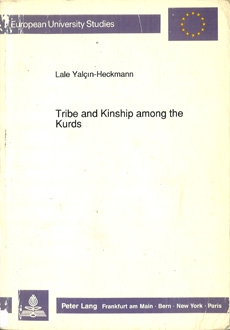|
ACKNOWLEDGEMENTS
Throughout the various stages of this research and writing I have had financial and moral support from different institutions and persons. My study in England was made possible through a loan from the Turkish Ministry of Education. My fieldwork, however, was mainly financed by my parents and the villagers in Hakkari. The hospitality and help of many villagers and townspeople in Hakkari is memorable, and I extend my thanks to all of them anonymously. Especially the villagers of Sisin have given me a unique chance of leading a commoner’s life in Hakkari and introduced me to the pleasures of mountain life without having to climb any summit. I discussed my ideas and various versions of the manuscript with Nükhet Sirman, Nancy Tapper, Friedrich Heckmann and my supervisors Chris Fuller and Ernest Gellner. I have profited from their criticism, suggestions, and commentary and I thank them all here. Miriam Ryan and Angela Zerbe have been extremely helpful in correcting my English and I received valuable guidance from the Geography Department at the L.S.E. for drawing my maps. Enver Ozkahraman has been a loyal friend a great support throughout my stay in Hakkari and afterwards. He has kindly provided some of the pictures for this book. Rainer Kasan has spent long hours trying to solve the problems with my word processor. The final work of conversion, layout and printing the manuscript has been carried out by Attila Azrak. I express my gratitude to all of the above.
Introduction
Kurds have become visible once again to the world with their tragic exodus from northern Iraq, as a consequence of the Gulf War and years of oppression by the Iraqi leader Saddam Hussein. As I write these lines, their suffering and despair is being shown daily in the media. Their national and political chances of survival and a dignified life have become a concern for the western governments. The rugged mountains of the Iraqi-Turkish border and their barren and rocky hills covered with snow is for the western audience the backstage for the human misery of hundred thousands of Kurds. I know these mountains and the people who live there in a different way. The province of Hakkari, which lies on the Iraqi-Turkish border, was the setting for my anthropological research on Kurdish tribes and kinship system. In 1980 I went to Hakkari for the first time and was struck by the beauty of the landscape and its contrasting modes of human life. As I was waiting to make the right contacts and find a suitable village to stay, I heard many dramatic and tragic stories about tribal fights, raids, kidnapped women or deadly avalanches and have often been perplexed at the particular combination of beauty and ugliness of the life in these Kurdish mountain villages.
During the eighteen months I spent in the province, I gathered information on the research questions of my doctoral dissertation in anthropology. They concerned in general the social organization of an ethnic and tribal community in Hakkari. Although the Kurds are in majority in Hakkari, with their tribal social organization and underdeveloped infrastructure they are not "typical" for Turkey. In my doctoral dissertation I explored the significance of tribal ideology and tribal forms of organization among the Kurds of Turkey, who have a strong kinship ideology; the importance of semi-nomadism, combined with "illegal" international livestock trade, for the drawing and maintenance of tribal boundaries and relations; and the significance of affinal relations for the apparently patrilineal ideology of Kurdish tribal and non-tribal groups.
This book is a revised version of my dissertation.1 My initial interests in doing research in an eastern province of Turkey were related to the problems of Kurdish identity, processes of assimilation and national awareness, differences between Kurdish and Turkish cultures and customs and the degree of incorporation of Kurdish groups into the economic, political and social structures of modern Turkey. These topics which I have dealt with in a limited way in the dissertation have been further developed in the revised book form. The focus is, however, still on the micro-level issues. After a decade of learning, reading, and ...
| 